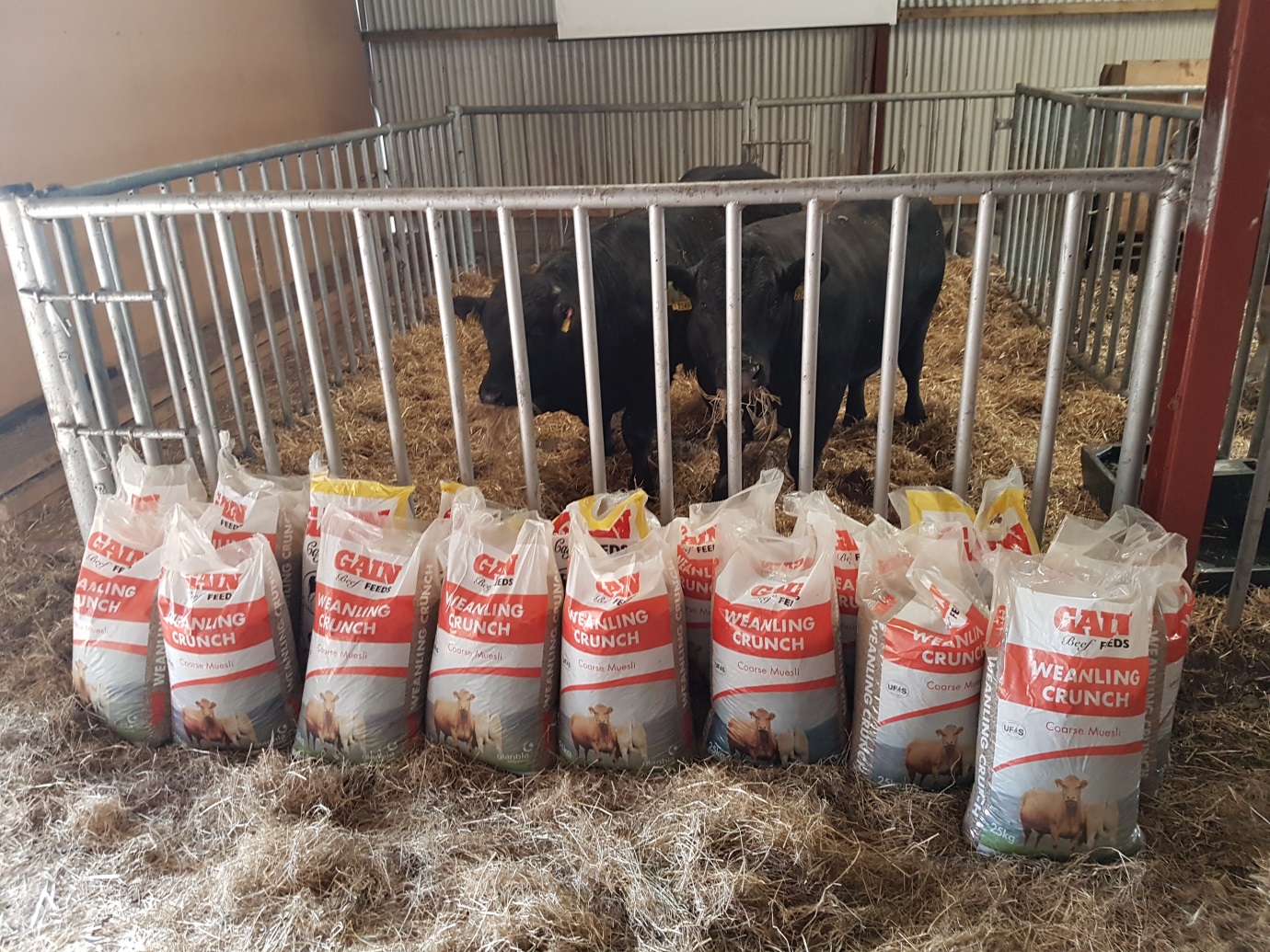Last Friday, ICBF invited industry representatives and G€N€ IR€LAND committee members to Tully progeny test centre, Kildare town, Co Kildare to discuss and review the objectives of the G€N€ IR€LAND Beef program. There was great interest in the event with 90 people attending on the day. Andrew Cromie gave an overview of the G€N€ IR€LAND Maternal Beef program and showed that 5 of the top 20 bulls on the ICBF active bull list for replacement Index have come through G€N€ IR€LAND program. Since the launch of the G€N€ IR€LAND program in 2014 which has increased focus on the replacement index, ninety-two bulls have been progeny tested. The first daughters of these bulls are now calving at 24 months.
Stephen Conroy explained the traits that are being recorded on the 192 AI progeny currently on a 120 day performance test at the centre. These traits include average daily gain, scanned ultrasound measurements and other predictors of meat eating quality along with feed intake and meat yield. Since 2014, performance data has being collected on over 1500 progeny of AI sires at the centre. The importance of feed intake brought great discussion among those attending especially after it demonstrated that there was a difference of 420 kilos in feed consumed between two Limousin sired bulls over a 100 day finishing period. Also, the bull that was eating less feed (left in photo below) was growing at 2 kilos per day while the bull that consumed more feed was growing at 1.60 kilos per day in the last 100 days. The difference in feed alone was €85 between the two animals.

Pat Donnellan then presented information on Whole Herd Performance Recording (WHPR). There is now 432 pedigree herds signed up to the program and this will see over 6000 cows weighted this year. He explained that the cow live-weight data will be very important in identifying the most profitable cow’s on-farm and also the bulls that bred these cows.
Overall, there was excellent discussion and engagement throughout the event with the consensus being that it is important for farmers to select animals on the replacement index and that selecting replacement females from within the suckler herd would have added benefits i.e. health etc., and increase genetic gain at a faster rate over selecting first cross beef females from the Dairy herd. It was also acknowledged on the day the important role Tully plays in collecting hard to record traits such as feed intake and meat quality data. See below for pictures of the event and animals on test at Tully.
The Presentations given on the day can be viewed below by clicking the image.

